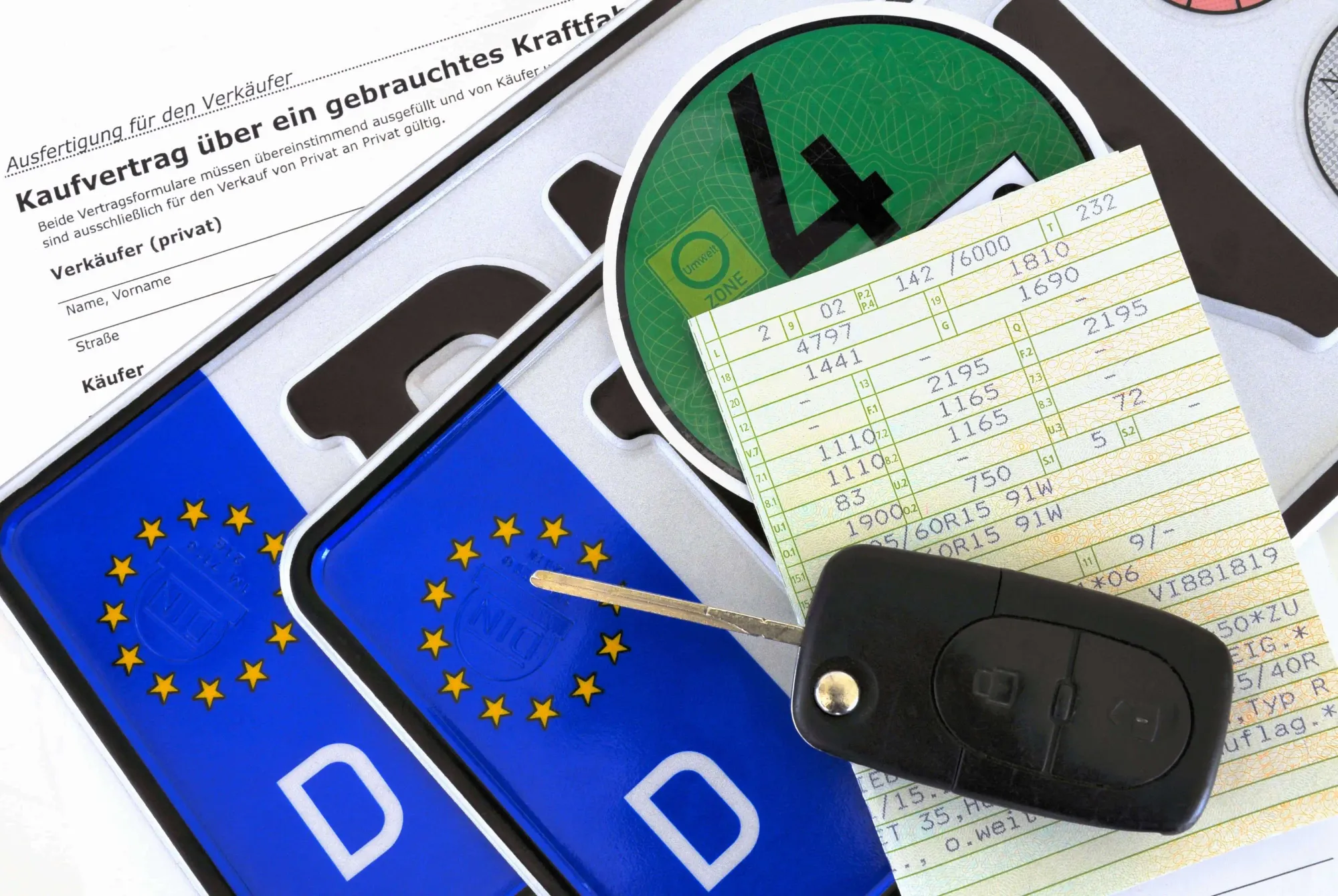The process of registering a car in Germany can seem overwhelming. Especially if you don't speak the language or are importing a vehicle from abroad.
From the necessary documents to how much it costs to register a car in Germany, we will guide you step by step so that you understand everything that is required.
We will also delve into specific considerations for foreign and UK cars. This is especially useful in the post-Brexit era.
Whether you live in Germany or are planning to move there, this guide is for you.
How to register a car in Germany
Registering a car in Germany ensures the car meets safety and legal standards.
Whether you’ve bought a car in Germany or imported one from abroad, It’s necessary to register it in your local car registration office before driving.
All vehicles must be registered at the local registration office where the vehicle’s owner lives.
In Germany, you’ll find the local registration office written as Kfz-Zulassungsstelle or Kraftfahrzeug Zulassungsstelle.
Here's a breakdown of steps:
Get an insurance for your car
Having insurance for your vehicle, it’s mandatory by law in Germany. This will get you covered from possible damages caused by accidents.
They’ll provide you a 7-digit eVB number that you’ll need to register your vehicle.
Vehicle inspection (TÜV Report)
Taking an appointment at the general car inspection (Hauptuntersuchung), it’s a very important step to get your used vehicle registered.
The vehicle inspection ensures your car meets safety and emission standards, so you can legally drive it.
The inspection will usually takes around 30 minutes and costs between 70 to 150 euros.
They'll give you a proof of roadworthiness at the end of the inspection.
Gather all the necessary documents
We know gathering all the documents can be annoying, so we recommend you to keep them all in one place.
Here’s a list of what you need to register a car in Germany:
- Valid ID proof (passport or ID card).
- eVB number document from your vehicle insurance.
- Proof of ownership (purchase contract or vehicle registration certificate).
- TÜV Report.
- Certificate of Conformity (if applicable).
- Foreign Registration Certificate (for imported cars).
- Bank details.
Make an appointment in your local registration office
Once you have all your documents gathered, it’s time to visit your local registration office. Don’t forget to take an appointment before going.
Present all your documents and the local staff will process your application. You’ll also be asked to pay the registration fees.
Get your license plate
You’ll be able to buy your license plate anywhere that offers this service. This is not regulated in Germany as the registration is.
Pay your vehicle tax
Now that you have registered your vehicle, you’ll receive a tax notification with the information you need to pay your taxes and how to do it.
When do I need a German Certificate of Conformity (COC)?
A German Certificate of Conformity, also known in German as COC papier or COC papiere, is a document that confirms your vehicle meets the European safety standards.
With it, you’ll be able to drive around legally.
You’ll need a Certificate of Conformity in the following cases:
- If you move to Germany and you want to drive your car.
- If your are visiting Germany for a long period of time.
- If you import a car from any EU country.
- If you’ve lost your previous Certificate of Conformity.
Cost of registering a car in Germany

The cost of registering a car in Germany can vary by region and vehicle specifics. The registration fees for a car in Germany are not standardized.
Here’s a list of some of the typical expenses:
- Car registration: around €30
- Emission sticker fee: €5
- License Plates: €20 - €50
- Vehicle inspection: €70 - €150
- Car insurance: It depends on your vehicle specifics, driving record and insurance company.
FAQs
It’s common that many questions pop up to your mind during the vehicle registration process.
Here we answer the most common:
Registering a UK car in Germany
Although the United Kingdom is no longer part of the European Union, if you import your vehicle from the EU to the United Kingdom, your Certificate of Conformity remains valid and allows you to register your vehicle in EU countries.
The Certificate of Conformity is still accepted and issued by the United Kingdom, but this is likely to change. To stay up to date, you can follow the guidelines from the United Kingdom and Germany.
How long does car registration take in Germany?
The timeframe varies by region. It typically takes a few days once you've submitted all required documents. Some areas offer express services for an additional fee.
Do I need to speak German at the registration office?
It will make your life easier but it’s not essential.
Many offices provide assistance in English or you can bring a German-speaking friend if you're uncertain about language barriers.
Helpful resources:
